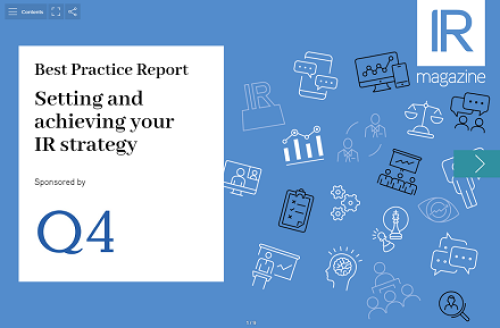New guidelines put accent on shareholder ID and investors’ stewardship duty
A newly revised Shareholders’ Rights Directive has been adopted by the European Council, with an aim to curtail ‘short-term strategies which are currently driving corporate governance,’ encourage long-term engagement and increase transparency.
Remuneration of directors, shareholder identification, facilitating the exercise of shareholders’ rights and increased transparency for institutional investors and proxy advisers are among the key items emphasized by the directive, as stated in a Council press release.
According to the new guidelines, investors will have oversight over director pay packages and be prompted to assess ‘both their financial and non-financial performance’ over the long term when voting on remuneration policy, which should be disclosed ‘without delay’ after a company AGM.
In order to promote shareholder engagement, companies should be able to identify investors by demand on ‘any intermediary in the chain that holds the information’. European countries may set a minimum shareholder stake – which will be no higher than 0.5 percent – for companies to be allowed to request identification.
Giving companies the right to know who their shareholders are is an important step forward in transparency but the amendment is missing a point, in the opinion of Mark Simms, CEO of London-based advisory CMi2i. ‘The new directive gives no guide as to the shape of the law, and if you don’t have very firm penalties built in, the compliance departments at asset managers just won’t disclose their holdings electively,’ he notes. ‘We’re waiting to see whether countries are going to go the whole way and put in an equivalent of the UK’s section 793, or adopt a halfway house solution, like the French with the Nouvelles Regulations Economiques legislation, which applies to non-French institutions.’
Intermediaries will have an obligation to facilitate shareholder participation and vote at AGMs, and to deliver relevant company information ‘in a standardized and timely manner’. Related charges should be transparent for shareholders.
The new directive also requires that institutional investors develop and disclose their policy on shareholder engagement on a comply-or-explain basis. The policy should describe how shareholder engagement is integrated into investment strategy, and include rules managing ‘actual or potential conflicts of interests, in particular in a situation where the asset managers have [a] significant business relationship with the investee company.’
Simms highlights the new burden placed on institutions in terms of outreach and explaining how and why they’re engaging with issuers. ‘Investors will in turn expect a lot more in terms of information from the corporates themselves, and both parties are going to have to interact directly,’ he says. ‘There’s going to be a lot more engagement between the governance teams in the funds and the supervisory board to echo and match what the portfolio managers are doing in terms of engaging with the executive board.’
The new rules also introduce a new proxy adviser code of conduct, as well the requirement to submit transactions with related parties to shareholder approval.
European countries have a two-year timeframe to incorporate this amendment of the 2007 Shareholders’ Rights Directive into domestic law after the text has been published in the EU's Official Journal.










